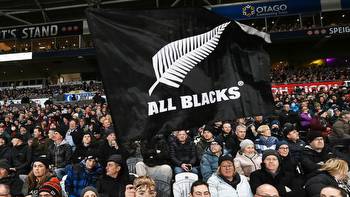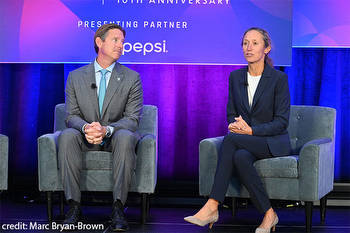The WSL needs to change but American investment could damage the game for years

The Women's Super League has grown exponentially since its launch in 2013 and the FA have been exploring avenues for capitalising on the opportunity for growth
At a time when interest in women's football is bigger than ever - the WSL is approaching a crossroads.
The FA are planning to no longer run England's top two leagues, including the Championship as well the top flight, beyond the end of this season. Therefore, next year will contain the biggest change in the English women's game since the summer of 2011, when the WSL was first introduced.
The game is almost unrecognisable from that first ever game - Arsenal away to Chelsea, with the Gunners winning 1-0 - for example, all 12 top flight sides now entirely professional. Now the governing body understandably recognise a need to pass on running the commercial operation of the league.
The 'Newco' being established to oversee the WSL and the women's Championship will run the professional game on a standalone basis in this country. As current League Chair Dawn Airey told us at a media day last month: "The FA is a regulator, and we appreciate that a regulator running a commercial league is an unusual thing.
"So the FA committed some time ago, to the leagues being handed over to the clubs to run, but only handed over to the clubs to run, when they're in a state when it's appropriate to pass them on."
Stakeholders have committed to a timetable of the handover for the start of the next season, but this further complicated by the fact a new broadcast deal will need to be agreed over the season. The current contract with Sky Sports and BBC - worth around £7.5million per season - expires next summer.
"We're working on the finances," Airey adds. "We're working on the governance and how are decisions made. That's complicated."
With reports last month in the Mail indicating that Premier League clubs are not agreeing to a £25million slice of funding to help set-up the revamp for next season, clearly it is a difficult process.
But are American private equity firms really the answer? Fresh reports on Friday suggest that investors from the other side of Atlantic have offered to buy the Women’s Super League from the Football Association ahead of the planned relaunch. With the clock ticking some may feel this is the best way forward.
However, the WSL's potential to become a £1Billion revenue making competition shouldn't be dependant on backing from across the pond. The growth in women's football across the UK is already there for all to see and will only continue to boom over coming seasons.
Hosting the Euros last year, the boom in WSL attendances and the public interest around England's World Cup campaign this summer all point towards a nation in love with women's football.
England's World Cup final appearance is only second to the Coronation in viewing figures. In an age where traditional television is struggling to replicate figures of the golden age, that is nothing short of staggering. Not every fan of the international game will watch the WSL but plenty will be converted.
In addition, any investment firm coming in won't just be handing over money for those who know the league to spend how they see fit. They will want a return on their hard cash - and quickly.
Franchise systems are commonplace in American sports and it's difficult to see how the WSL wouldn't follow a similar path should investment come. Last season, even reigning WSL-championship winning manager Emma Hayes said she was open to the idea of a franchise league.
"I like the idea of promotion and relegation from a traditional perspective," she said. "But it doesn't mean we should be hamstrung by it. We should be open about it.
"I've seen the successes of promoting franchise-type leagues and the consistency that that can then place in running that. Look at the WNBA [Women's National Basketball Association] as a great example. We should be open to everything, and everything shouldn't always be compared just because it's traditional or just because of the men's game."
In fairness, Hayes has worked in the States and experienced that system. But this would systematically change women's football almost overnight in this country.
The football pyramid, with the concept of promotion and relegation is sacrosanct not just in England, but across Europe. It is one of the cornerstones of football competition, giving the sport integrity. We saw this when the European Super League was rightly condemned in April 2021 with fans furiously protesting across the continent.
For the WSL to ignore that and go it's own way would be a huge mistake. It could not only alienate traditional football fans but also deny a younger generation excitement at both ends of the table and throughout the pyramid.
So any States-based would expect a healthy return on investment, preferably sooner rather than later and if that comes at the cost of European football tradition - so be it. The league does need help on commercial growth, and the FA accept this. But is it worth selling the soul of the league?
Plenty of us covering the World Cup in Australia discussed what was needed to take the WSL to the next level. A dedicated streaming service covering every game, kick-off times that worked for match-going fans and an expanded league of up to 16 teams, were all mooted. Selling to a private equity firm was not.
The top clubs involved in the negotiations, all who have huge Premier League men's sides as well as women's teams need to realise what they risk losing by letting go of the league. Comparing the women's game with the men's at every turn is futile, but it worth remembering that when the men's top flight relaunched in 1992 they did so successfully without foreign investment.
League chiefs expressed last month how one of their biggest issues going forward is how to keep the gap between the top flight and the Championship bridgeable for the average club. What they - and what most football fans - don't want is a closed shop.
But would private equity firms really be remotely interested is this, or protecting the women's grassroots games and investing in clubs lower down the pyramid who desperately need it? The likely answer is no. They would instead be focused on expanding the WSL's revenue streams by any means necessary.
You may think this would be good for the league. Fine, but don't pretend clubs not part of the top show in town would have their futures protected.
Hopefully the clubs can work out a way forward together and ensure the top two divisions remain in the hands of English football, rather than handed over to Uncle Sam. For too long the women's game in England didn't realise its own potential.
To sell it off now it finally has understood its' own value would be a grave error that could be felt for generations.
Join our new WhatsApp community! Click this link to receive your daily dose of Mirror Football content. We also treat our community members to special offers, promotions, and adverts from us and our partners. If you don’t like our community, you can check out any time you like. If you’re curious, you can read our




































